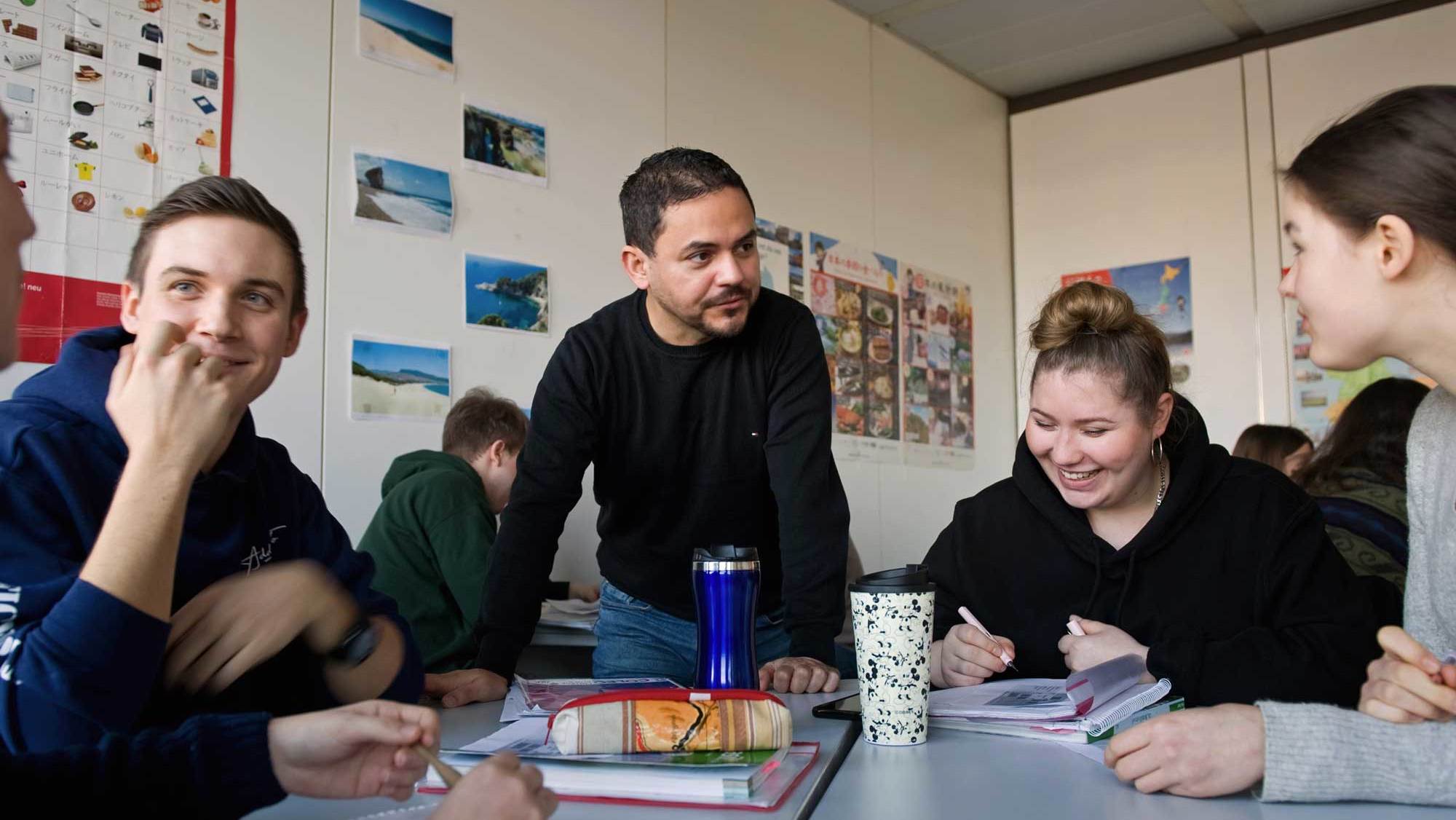
©Harald Rehling/Universität Bremen
“Facebooki and Lapitopi”
Since 2011, Fábio Nogueira has been teaching Brazilian Portuguese at the Languages Centre
“Teaching staff for specific tasks.” When people want to learn Brazilian Portuguese at the Foreign Languages Centre of the Universities in the Land of Bremen it is a “specific task.” “For those who want to learn it, it probably is,” laughs Fábio Nogueira. “On the other hand, it is just the correct administrative term for people like me. I teach people my native language here at the Languages Centre.”
“Teaching staff for specific tasks.” When people want to learn Brazilian Portuguese at the Languages Centre of the Universities in the Land of Bremen it is a “specific task.” “For those who want to learn it, it probably is,” laughs Fábio Nogueira. “On the other hand, it is just the correct administrative term for people like me. I teach people my native language here at the Languages Centre.” “German language – difficult language,” is a well-known German saying. However, when you listen to Fábio Nogueira talk, one realizes that the saying does not apply to him. The 37-year old speaks perfect German and only has a slight accent. His talent for and fondness of foreign languages led to him learning and studying German at his home university in Fortaleza in the northeast of Brazil. “I simply chose the most exotic language that was being taught there. The one that most Brazilians were not able to speak.” He had no connection to Germany at that time. “No relatives, no friends. Not even through football as I am not interested in it.”
“The A1 courses are always full. Often, there are 20 to 24 participants. In B courses, there are usually around 10 participants,”
A1 to B2 Courses
In 2008, a scholarship paved the way to Leipzig where he completed his German as a Language master’s degree at the university three years later. He then successfully applied for a job advertised by the Languages Centre. Since 2011, he has been teaching there part-time. To be exact, Nogueira teaches three to four courses of Brazilian Portuguese from level A1 to B2 each semester. “I once also offered the higher C1 level but that was an exception.” Normally, his courses are beginner’s courses and some of the learners then carry on. “The A1 courses are always full. Often, there are 20 to 24 participants. In B courses, there are usually around 10 participants,” according to the Brazilian. Most of them are students of Hispanic Studies, Franco-Romance Studies, or Integrated European Studies, for whom Portuguese is part of the curriculum. “There are sometimes people who are interested in Brazil, wish to complete a semester abroad there, have Brazilian friends, or spend winter there. Most of them have very specific ideas of how they want to use the language.”
“Shock Therapy” at the End of the Semester
He sometimes exposes his learners to “shock therapy” at the end of the semester by bringing a native speaker into the class. Said person then only speaks Portuguese. “Many of them are initially very shy but they quickly realize that they have learnt a great deal in only one semester.” Some of the students spend their semester abroad in Porto or Lisbon. In parts, there are great differences between the “original” Portuguese and the Portuguese of his home country – Fábio Nogueira knows all of the differences of course and teaches them. An example of one of the special features: “In Brazilian Portuguese, anglicisms are pronounced in a very special manner. Facebook becomes ‘facebooki’, laptop becomes ‘lapitopi’, and Big Mac becomes ‘bigi mäcki’. That’s something that you must know if you want to get by there.”
German Language Blog
Fábio Nogueira, who now has German citizenship as well, also shares his knowledge in a different way. Since 2008, he has had his aprenderalemao.com blog. In said blog, he helps people from Portugal and Brazil understand the secrets of the German language – for example, he offers grammar explanations (especially those that cannot be found in books), tips for websites, music, videos, and much more. Since 2011, Fábio Nogueira has been successfully teaching Brazilian Portuguese at the Languages Centre. Many of his learners are surprised by how much they have already learnt after attending the beginner’s course.